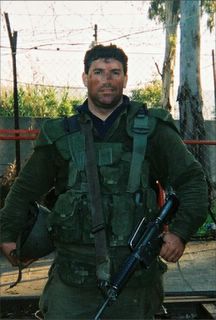The current debate over the value of a military surge suggests that decision-makers finally understand that we can’t achieve our strategic goals without having more boots on the ground.
The number of additional soldiers being discussed ranges between 20,000 – 40,000. This would bring the total number of coalition troops in Iraq to about 200,000. This is a large force, but it is actually only 50% of the troops required. According to the Brookings Institute, about 400,000 troops would be needed to stabilize Iraq. This isn’t just an academic exercise. General Shinseki told U.S. decision-makers more than three years ago that several hundred thousand troops would be required for post-war Iraq, but the administration chose not to listen.
The administration and the military can turn things around and Iraq can still become a success story, but this will only happen when decision-makers recognize that the escalating violence and lawlessness over the past three years is the direct result of deploying too few troops.
Hopefully the recent appointment of a new Secretary of Defense will bring new thinking and these estimates will be taken seriously because stability and security in Iraq will remain an unfulfilled goal until there are at least 400,000 foreign soldiers who are tasked with keeping the peace.
Israel’s recent history demonstrates the critical importance of having enough boots on the ground. In 2002, when suicide bombings steadily increased until they became nearly daily events, the Israeli military swept into the West Bank with about 20,000 reservists and took control. By deploying enough ground forces for Operation Defensive Shield and by maintaining troop levels over the years, Israel has reduced attacks by over 90%. For the U.S. to have the same level of physical coverage over Iraq as Israel has over the West Bank, the U.S. would need approximately 500,000 troops.
Compare Israel’s success in 2002 to its failure to achieve key objectives in Lebanon last summer. In 2006, the Israeli military deviated from its proven strategy and severely limited the number of troops allowed to enter Lebanese soil. As a result, Israeli troops were able to clear towns, but unable to hold them. Further, even though the Israelis won every firefight, they did not achieve complete control over Lebanese territory. This is very similar to the U.S experience in Iraq. Recognizing that the strategy failed, the Israeli military is preparing to enable the deployment of large-scale forces if it becomes necessary in the future.
We must keep in mind that our enemies can do the math. They know that it took over 6,000 U.S. troops to secure a city the size of Fallujah, even though the Mehdi Army quickly melted away alongside the civilian population. If the individual who is considered to be "the most dangerous accelerant" of sectarian violence in Iraq, Muqtada al-Sadr, orders his men to stand and fight, the number of U.S. forces required to take control of Fallujah could triple overnight. One man can tie down a significant number of the additional troops sent over and al-Sadr knows it. Worse, U.S. forces are dealing with multiple sources of violence. Trouble doesn’t spike in one spot at a time. If al-Sadr turns up the heat, the U.S. will still have to contend with Sunni insurgents, criminals, and Al Qaeda.
If the size of the coalition presence in Iraq remains seriously understaffed, those who oppose U.S. nation-building efforts will continue to stall development projects, terrorize citizens, target Iraqi officials, and attack U.S. forces. An additional 40,000 troops will not significantly impact the security or stability of the country.
We’ve arrived at a turning point in Iraq and what happens next will directly impact U.S. security and its place in the world for decades to come.
With enough boots on the ground and a comprehensive strategy for nation-building, Iraq can still become a success story. But a stable, unified, and prosperous Iraq will only arise if 400,000 – 500,000 soldiers are deployed across the country.
The additional troops shouldn’t come from the U.S., which already bears the brunt of the burden. The U.S. must remind Europeans that a destabilized Middle East will harm their interests more than our own and we must convince them to share the burden more equally. And within the region, instead of focusing on the countries that are trying to thwart us at every turn, as has been suggested by the Iraq Study Group, we should turn to Saudi Arabia and other gulf states that have a vested interest in a stable Iraq. They know that a US withdrawal will devastate the region and should be willing to provide soldiers, police, and other useful personnel like translators. And Egypt, which has one of the most powerful military forces in the region, is eager to demonstrate its leadership to the Arab world. We should let them.
The Coalition of the Willing, which has provided token political and military support over the years, must be transformed into a United Front that is deeply committed to Iraq’s stability.
The manpower needed is available and there is wide consensus that a stable Iraq is in everyone’s interest. We just have to ask nicely and say thank you. Surely, we wouldn’t let pride keep us from enabling our soldiers to achieve their mission, providing the Iraqis with the security required for nation-building, and giving Middle Eastern countries a chance to actively participate in the stabilization of their own region.

